Every single day we are presented with a fresh expanse of time and place. On one side of that present is the old past, both recent and long ago. On the other side is the future, the new, the unknown, the potential. Our challenge is walking the alley of our day, not getting hopelessly tangled in the rusty barbwire of the past or leaping into the electric fantasy of the future.
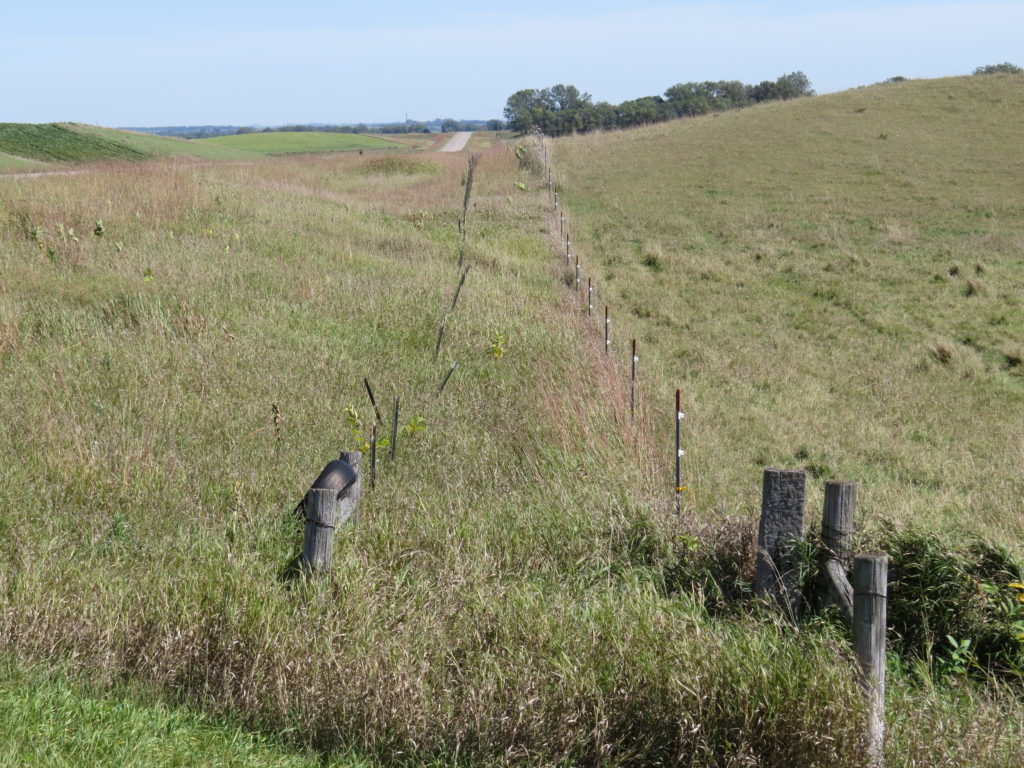
During my time in South Dakota I walked most every day. At the mailbox, I could look east and see my destination—the crossroads that were one mile away. Easy; just walk. At the same time, each night I read from a new book a friend had given me. Easy; just read. On page 5 of the first chapter was a scripture reflection by John Valters Paintner, and these were the words:
Thus says the Lord: Stand at the crossroads, and look, and ask for the ancient paths, where the good way lies; and walk in it, and find rest for your souls. –Jeremiah 6:16
I was walking to the crossroads each day, so with that passage stuck in my head, I began to stand at the crossroads also. I memorized the words as I walked, rolled them over in my mind. What are the chances these two happenings had happened at the same time? Pay attention. What are the chances of literally standing at the crossroads in rural South Dakota without getting run over? Pretty darn good.
I stood and looked east. A corral, an old windmill, a cemetery on the hill.
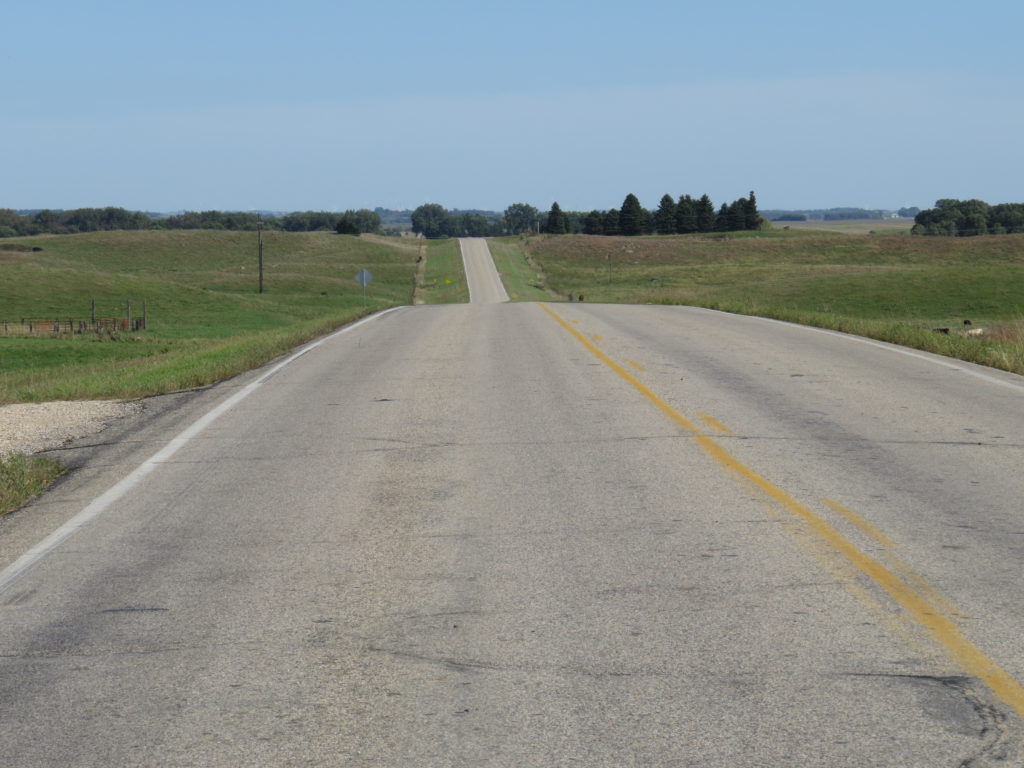
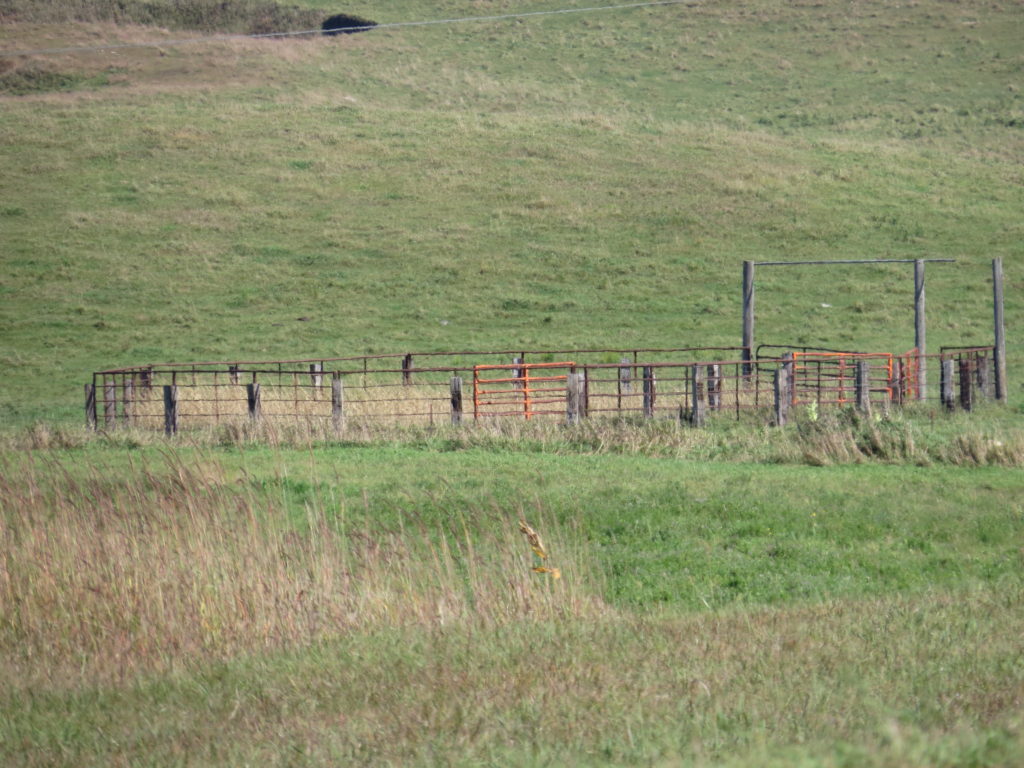
I stood and looked north. A highline wire, fields and farms, a thistle gone to seed, a distant hill.
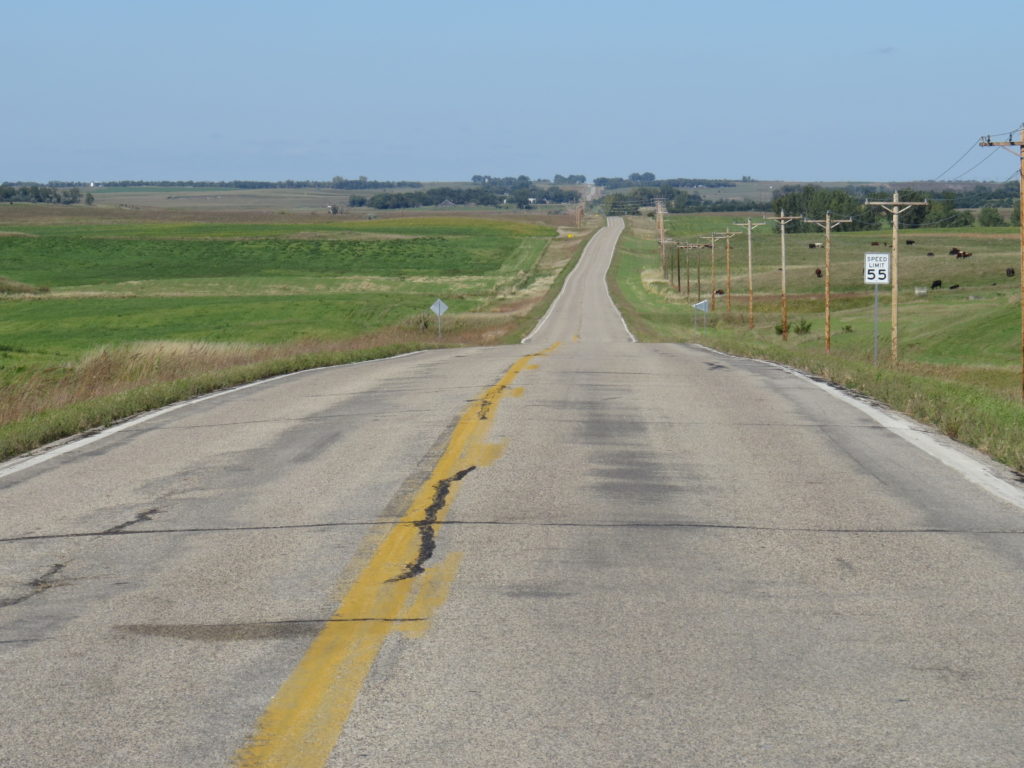
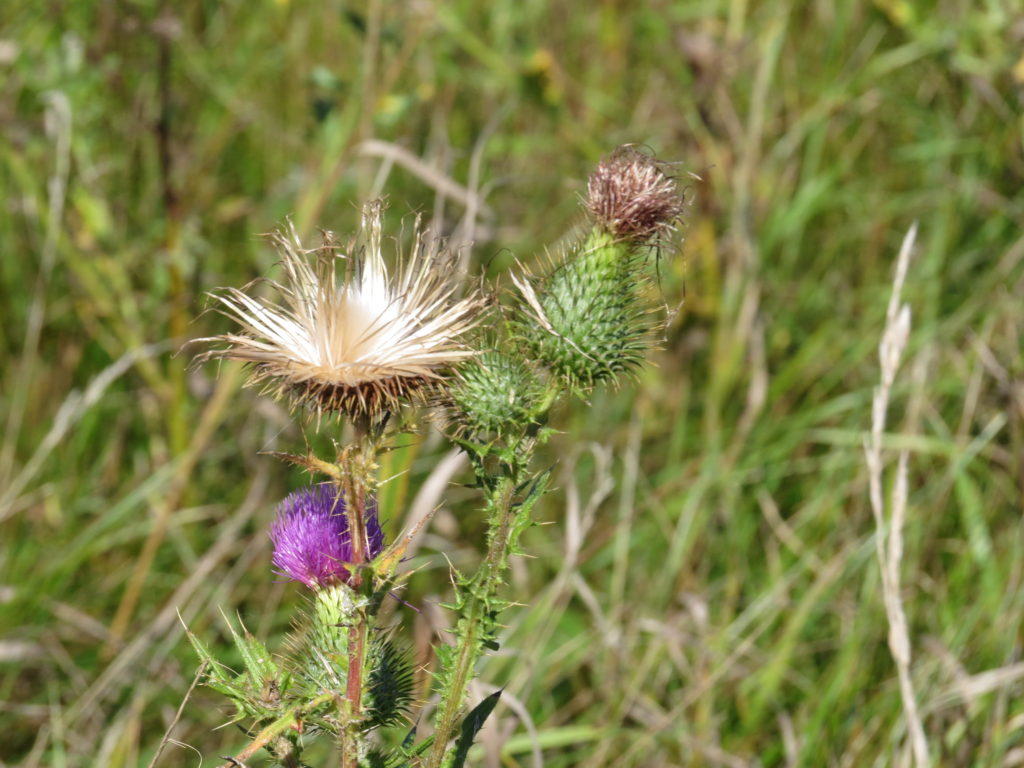
I stood and looked south. I couldn’t see very far. The highline wire, tractor mud on the road, Indiangrass in the ditch.
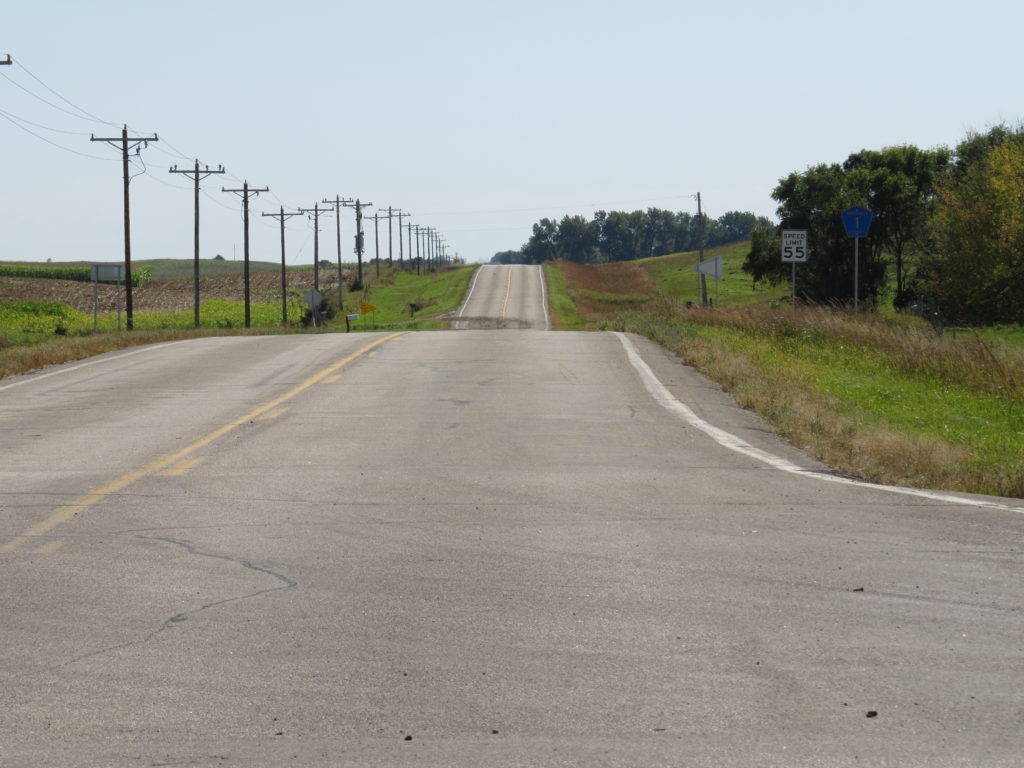

I stood and looked west. Prairie grasses and pastures, a straight and narrow shelterbelt of trees, a clear, blue sky.
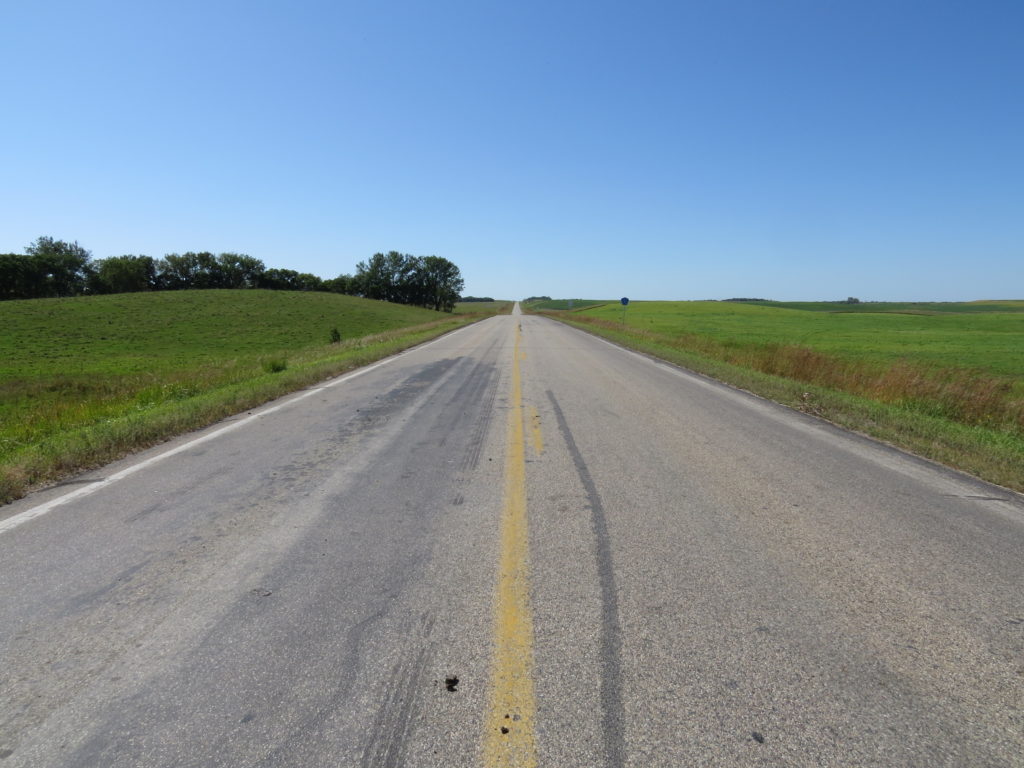
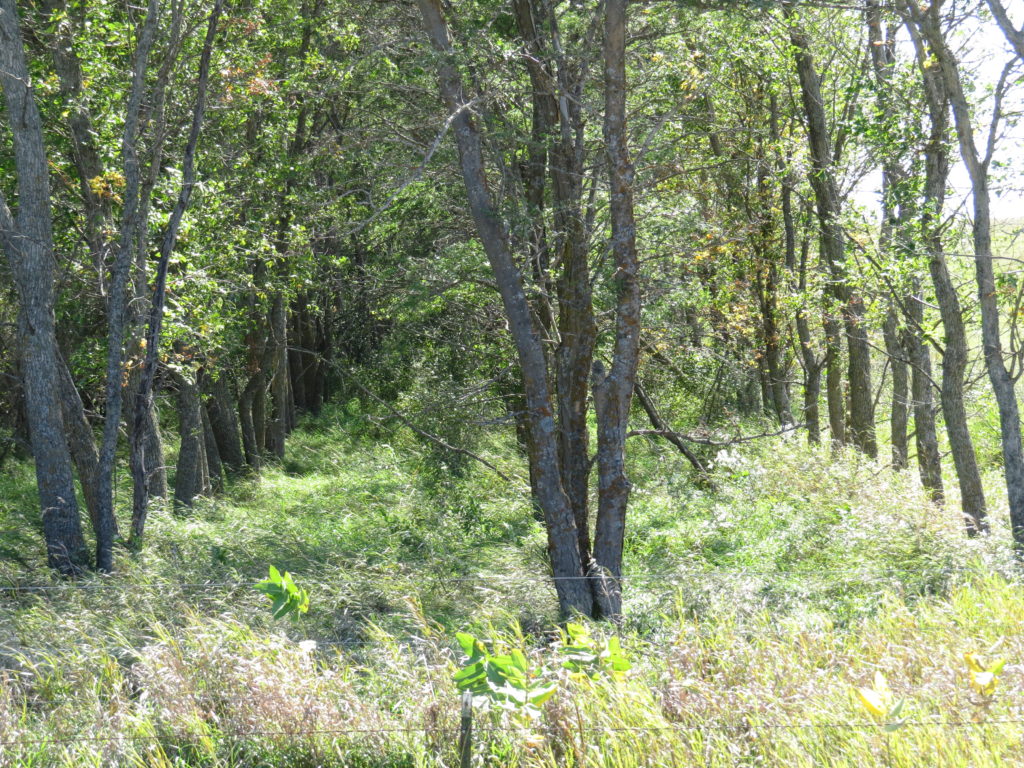
Jeremiah’s passage was so imperative, so direct: stand, look, ask, walk, and find. Easy? I stood, I looked, I walked, and I got caught up on “ask for the ancient paths.” What does that mean? “…the ancient paths, where the good way lies.” I have always tried to make my decisions with intention of following the good way. Is the ancient path easy, or the way of Nature, or is it hard, like taking the high road?
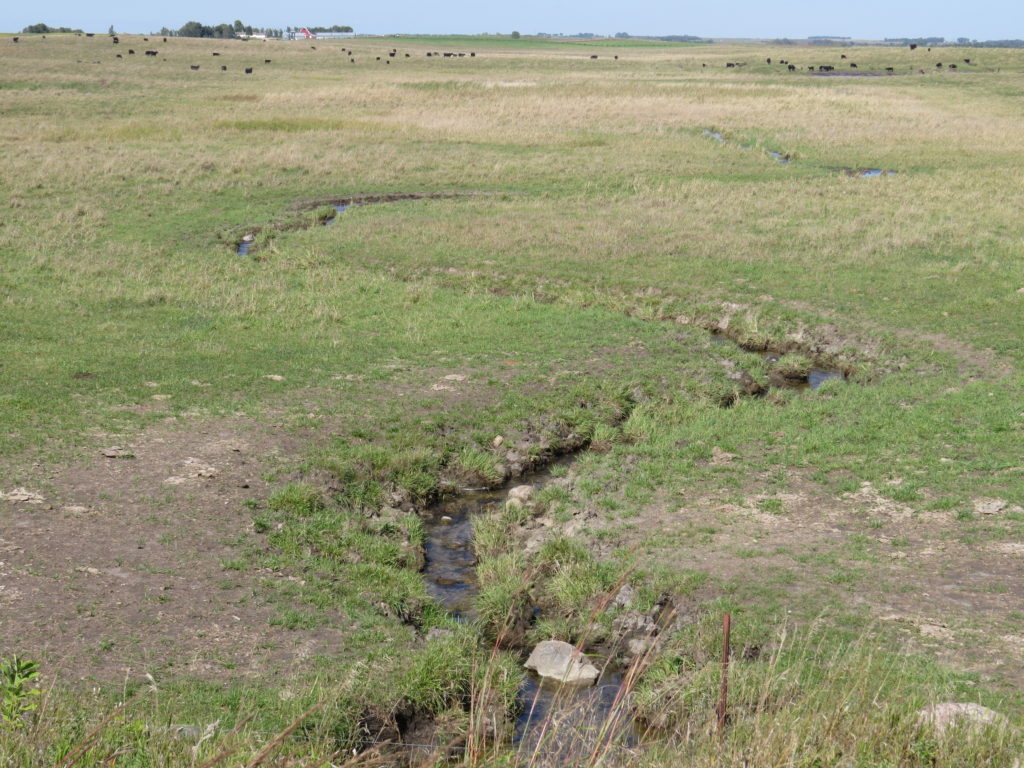
Paintner describes the book of Jeremiah as “an important aid to learning from the mistakes of the past and discerning the path ahead.” Stand at the crossroads. Look. Ask for the good way. Walk through the gate and down the alley between past and future. Find rest for your soul.